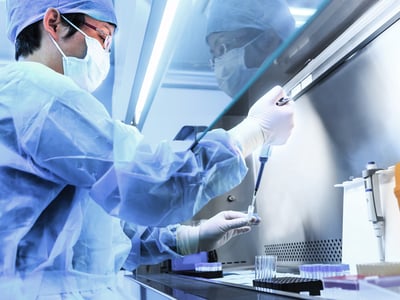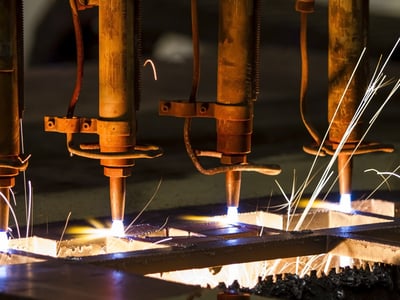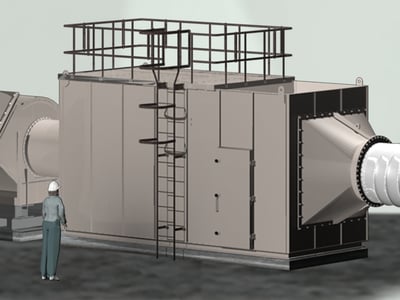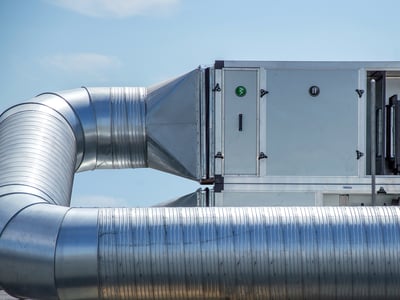During the production of lithium ion batteries many different airborne contaminants are generated that can affect the health of workers. Ensuring that these airborne contaminants are removed and captured from your facility is critical to the safe operation of your production facility.
The most critical environmental item to be controlled in battery production facilities is relative humidity, sometimes as low as a dew point temperature of -70º celsius. In order to maintain this level, the rooms must be sealed to prevent the introduction of any moisture. For lithium Ion battery cells clean materials account for 85% of that pack process materials cost. Reducing contamination through all stages of the manufacturing process will significantly increase the yield, which has been known to be 50% when contaminant levels are not controlled properly. Increased yield and better performing cells will foster the market’s acceptance of this new technology. Improving and maintaining air class inside the building will increase yield and produce better performing cells this will improve productivity and promote faster adaptation of this transport mode.
Different types of lithium-ion batteries use different chemistries and have different performance, cost, and safety characteristics. The cells of a lithium-ion battery contain separators that keep the anodes and cathodes, or positive and negative poles, from touching each other. If a piece of metal gets too close to the separator, it can puncture the separator and cause a short circuit. Controlling the air quality during the manufacturing process reduces this costly contamination, increases yield and assures that a quality product will make its way to the user. Camfil clean air solutions will protect your processes by reducing the airborne contaminants that foul or short circuit cells. Yield is increased and a quality product is packaged for the user
During the production of Lithium-ion batteries different particulates, gases and toxins are created that can cause a risk to both the people within your factory and external stakeholders. Ensuring that the health of all stakeholders is properly addressed will ensure a safe working environment. Camfil clean air solutions can help to capture and remove these potentially harmful contaminants in the air to ensure a safe and clean working environment.
Reducing energy costs and becoming “Net Carbon Zero” is a key initiative of many of the worlds leading brands. Did you know that HVAC systems can equate to over 50% of your total energy consumption and of this 30% can be directly related to the air filter? Camfil clean air solutions are designed to ensure your plant is energy optimised without compromising on air quality.

Controlled environments must protect critical processes and personnel. A high level of air cleanliness is essential to protect products and to contain hazardous compounds. High-quality filtration systems help ensure regulatory compliance and maintain efficient operations.

Battery cell production involves new manufacturing processes based on laser technology that generates dust & fume which that must be extracted in a controlled manner to eliminate the risk of contamination and harm to the personnel.

Protect the environment and people from dangerous or high concentrations of particles and molecules released by industrial processes, comply with local safety regulations and reduce operating costs of your exhaust air filtration system.

Protect people, processes, products and equipment while keeping maintenance and energy costs low by keeping air handling units unclogged.

Not all people who purchase our products are experts in air filtration and they shouldn’t have to be either. The purpose of Camfil City is to give everyone a chance to learn the basics of what our clean air solutions can do for them.
Air cleaners and air purifiers Food and beverage Life science and healthcare Sustainability Education and experience Innovation technology and research Virus Contamination Control Energy and Power Systems Air quality Commercial and public buildings Electronics and optics Standard and regulations Manufacturing and machinery Take a Breath Case studies